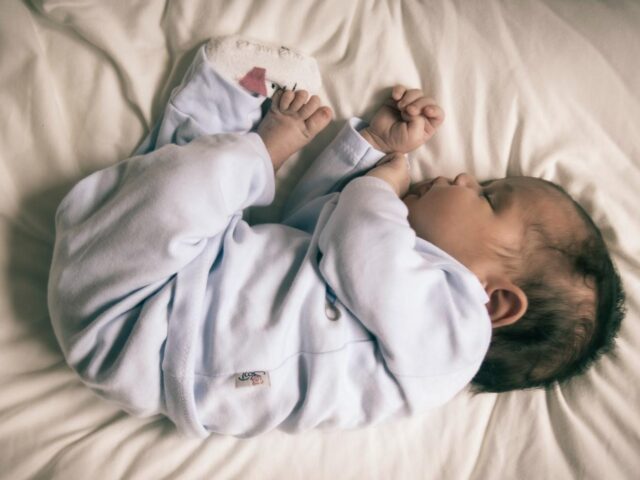It is no secret that having a baby can cause a large range of lifestyle changes, one of the main ones being a change in sleep patterns and the overall quality of parent’s sleep. New parenthood comes with intense sleep disruptions due to the demands of a young baby, and sleep disruption can continue for several months or years.
But does the amount of sleep you get as a new parent depend on whether you’re the mum or the dad? And are the parental sleep patterns of married couples the same as couples that are living together, but not married? Researchers from the Centre for Population Change used data from around 1,000 parents in Understanding Society to find out.
Differences in sleep hours and sleep quality
The study analysed changes in sleep hours, as well as sleep quality within a three-year window. During this period, they found that women had a greater decline in sleep compared to men once they became parents. On average, women’s sleep was reduced by 42 minutes per night. Before parenthood women tend to sleep more than men, meaning that once they become parents, men and women tend to sleep the same amount. Sleep studies from biology and psychology researchers suggest that women need more sleep than men due to biological and hormonal factors, or because of the higher rate of chronic illness experienced by women.
When the researchers looked at the quality of sleep people reported, they found that the odds of having good sleep quality before becoming parents did not differ by gender or partnership status. After having a baby, both women and men experience a significant decline in sleep quality, but women are particularly impacted by needing to feed their child during the night or by other childcare responsibilities. Sleep quality was particularly poor for women in their baby’s early life.
What about partnership status?
One third of births in the UK are now within a cohabiting relationship, rather than a married one. Before having a child, married people have a larger gender difference in sleep hours, but not sleep quality, than cohabitors – married women sleep more than married men, while co-habiting couples tend to sleep more similar hours.
After having a child, men who were cohabiting experienced a greater reduction in sleep than married men (around 30 minutes per night). Married women lost more sleep than married men, while cohabiting couples lost about the same amount of sleep.
The researchers say, “Our findings provide important insights. While the entry into parenthood results in similar sleep hours and quality between new fathers and mothers, the change in sleep hours among mothers indicates that mothers carry the burden of increased caring responsibilities, even when they are working… The finding for cohabiting men raises questions about inequalities and disadvantages – do cohabiting men experience a greater decline in sleep because they are helping their partner with night-time childcare, or because they are worried about economic and relationship instability? Future research needs to uncover more about the source of these inequalities.”
Read the paper: Sleep hours and quality before and after baby: Inequalities by gender and partnership
Family and householdsHealth and wellbeing



